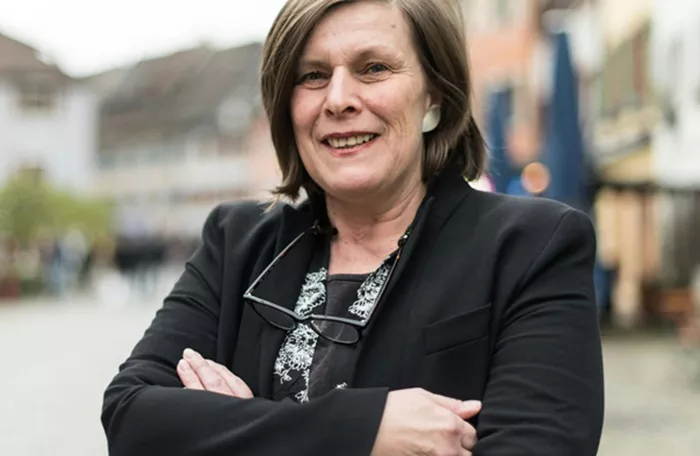Barbara Köhler (1959–2021) stands as a vital figure in contemporary literature and a distinguished 21th Century German poet. Her work profoundly shaped German poetry in recent decades. This article explores Köhler’s life, poetic style, themes, and her place among other important German poets of her generation. Through careful analysis, it highlights her unique contributions and enduring influence in the evolving landscape of 21th Century German poetry.
Barbara Köhler
Barbara Köhler was born in 1959 in Germany. She studied literature and art history. This background influenced her poetic vision deeply. Köhler’s early exposure to literature and culture nurtured her sensitivity to language. She started publishing poetry and prose in the 1980s, establishing herself as a fresh voice in German poetry.
Poetic Style and Innovation
Köhler’s poetry is known for its formal innovation and linguistic playfulness. She often experiments with structure and sound, creating a rhythm that challenges traditional poetic forms. Her work sometimes appears fragmented, reflecting the complexity of human experience.
She used language as a tool for exploration, questioning the relationship between words and meaning. This approach is typical among many 21th Century German poets who seek to reinvent poetic expression.
Köhler’s style differs from poets like Durs Grünbein and Jan Wagner, who often emphasize narrative clarity or lyrical beauty. Instead, Köhler’s poems demand active reading and interpretation, which can feel both challenging and rewarding.
Major Themes in Köhler’s Work
Köhler’s poetry addresses themes such as identity, memory, and history. She often reflects on personal and collective experiences, especially the role of women in society. Her feminist perspective is a strong current in her poetry.
She examines language as a means of empowerment and resistance. Köhler’s poems often question established narratives and cultural norms. This critical stance aligns her with other female poets of her time who explore gender and social issues through poetry.
In addition, Köhler shows a deep engagement with German history and its complexities. She approaches historical topics with nuance, avoiding simplistic interpretations.
Representative Works
One of Köhler’s most celebrated collections is “Verwundbar wie in den besten Zeiten” (Vulnerable Like in the Best Times). This collection illustrates her skill in combining personal vulnerability with linguistic experimentation. The poems present an interplay between fragility and strength, often mediated through poetic language itself.
Another notable work is “Mimikry”, which highlights her interest in imitation and transformation. Here, Köhler explores the fluidity of identity and the ways language shapes our self-understanding.
Her prose also deserves mention, particularly her novel “Die Prinzessin von Dingsda”, which showcases her narrative talents and thematic concerns.
Comparison with Contemporary 21th Century German Poets
Barbara Köhler belongs to a dynamic generation of 21th Century German poets who respond to modern challenges with fresh literary approaches. To appreciate her place, it helps to compare her with some contemporaries.
Durs Grünbein
Durs Grünbein, born in 1962, is one of the most influential German poets of the late 20th and early 21st centuries. His work often explores history, philosophy, and the transformation of German identity post-reunification. Unlike Köhler, Grünbein tends toward a more accessible poetic voice, with clearer narrative arcs.
While both engage history critically, Köhler’s work is more experimental in form. Her poems question language itself, whereas Grünbein uses language more as a medium for reflection.
Jan Wagner
Jan Wagner, born in 1971, is another significant 21th Century German poet. He is known for his lyrical precision and classical influences. Wagner’s poetry is often praised for its musicality and clear imagery.
In contrast, Köhler’s work challenges traditional lyricism. Her poetry embraces ambiguity and linguistic play, inviting readers to engage more actively. This contrast shows the diversity within modern German poetry.
Marion Poschmann
Marion Poschmann, born in 1969, is a contemporary female poet who also explores language and identity. Like Köhler, Poschmann integrates feminist perspectives and philosophical depth. Both poets challenge conventional narratives but through distinct styles.
Poschmann’s poetry often feels meditative and serene, while Köhler’s is more disruptive and provocative. Together, they represent the varied voices shaping 21th Century German poetry.
Contribution to German Literary Culture
Barbara Köhler’s impact extends beyond her poetry. She was also a translator, bringing international voices into German literature. Her translations reflect her linguistic sensitivity and commitment to cultural dialogue.
Köhler participated actively in literary discussions and helped shape the direction of contemporary German poetry. Her work inspired younger poets and readers to reconsider the possibilities of poetic language.
Challenges and Legacy
Köhler’s poetry is sometimes seen as difficult due to its complex structures and dense language. This challenge, however, is part of her artistic vision. She believed poetry should provoke thought and self-reflection.
Her legacy lies in expanding the boundaries of what German poetry can do in the 21th Century. Köhler’s insistence on innovation and critical inquiry ensures her place among the most important voices of her time.
Conclusion
Barbara Köhler is a remarkable 21th Century German poet whose work embodies the experimental and reflective spirit of contemporary German poetry. Through her unique style and thematic depth, she offers a powerful exploration of identity, language, and history.
Comparing her to contemporaries like Durs Grünbein, Jan Wagner, and Marion Poschmann reveals the rich diversity of voices in modern German poetry. Köhler’s contribution lies in her bold linguistic experiments and her critical engagement with cultural and feminist themes.
Her poetry challenges readers and enriches the tradition of German poetry, making her an essential figure in understanding the landscape of 21th Century German poetry. As scholars and readers continue to explore her work, Barbara Köhler’s influence will undoubtedly endure, inspiring future generations of poets and literary thinkers.

